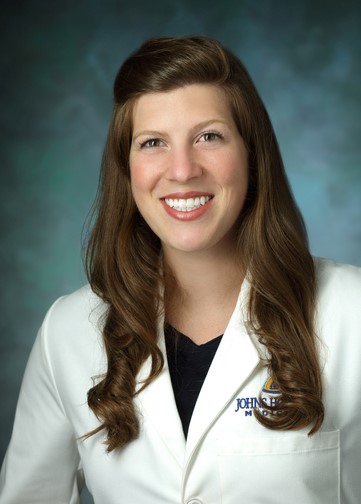Takeaway
In defense of the practice of pimping, though the term is a regrettable word choice, I learned from having questions directed at me. And my frequently incorrect responses were usually met with thoughtful explanations.

Lifelong Learning in Clinical Excellence | January 28, 2019 | 3 min read
By Helen Bradshaw, MD, Johns Hopkins University School of Medicine
I recently read this graphic novella in the opinion section of The Guardian, and it inspired me to reflect on both a patient story and my own experience with pimping when I was a medical student.
Gloria, 40 weeks pregnant, arrived to the labor and delivery floor in tears. From our workroom, we could hear the patient calling out. The resident rolled her eyes, “She was here yesterday, it’s just Braxton Hicks. You can see her without me.”
Gloria was alone in the small room, lying on the examination table. She looked terrified, our eye contact broken when she yelled out again, arching her back and clenching the table. I worried that the baby was already coming out! The closest I’d come to delivering a baby was maneuvering a plastic manikin through the legs of a classmate. I was confused: couldn’t a woman this far along have false contractions one day, and progress to labor by the next day? I ran back to the resident, requesting that she see Gloria. Within the next two hours, Gloria gave birth to a healthy baby girl. The resident’s dismissal of Gloria’s fear and denial of the validity of her labor ignored both Gloria’s medical needs and her personhood. This egregious experience is an example of a minority of interactions between patients and providers that I witnessed over my clinical years of medical school; experiences like this were luckily rare.
For each incident reminiscent of Gloria’s poor treatment, I can describe endless examples where I felt respect for my own or another’s humanity: An attending crouched next to a patient’s bed and asked how he might make him more comfortable. A medicine resident sent me home when he found out that my grandmother had died. Attendings expected that I present my patients as people with diseases, such as, “a soon-to-be great-grandfather with likely pancreatic cancer,” rather than, “our pancreatic cancer.” Team members offered corrections when I used words thoughtlessly, like “prostitute” rather than “sex worker.” And a patient shared that his primary objective was to attend his son’s art show in the last weeks of his life.
While low in the medical hierarchy, I frequently found myself in a privileged position as a medical student. Without direct patient care responsibilities, I was on a two-year-long tour of the hospital, a month to try on each discipline, a carved-out period to explore which specialty fit me best. An internal medicine attending explained to me that the expression, “bottom of the totem pole,” comes from a confused interpretation. She clarified that the main character of the story is typically placed closest to the earth and that the lowest position on the pole holds the greatest honor. As a medical student, from this privileged position as a learner and observer, my time was protected, my tasks generally assigned for their educational merit, and in turn, I had the luxury to hear patient’s stories as they wanted to tell them.
In defense of the practice of pimping: though the term is a regrettable word choice, I learned from having questions directed at me. And my frequently incorrect responses were usually met with thoughtful explanations. Through these questions, attendings and residents engaged me in patient care, invited me into the thought process behind the their medical decisions, and demonstrated that they were invested in my education and development. To each of them, too numerous to count, I am grateful. We need a new term for the (in my experience) educational practice.
Grace’s story speaks to the callousness, arrogance, and belittling that too-often hinders medical education and patient care. My hope for present and future medical trainees is that they learn from humble and humanistic educators, like those I was fortunate to encounter, and in turn, perpetuate a culture of respect for patient and colleague personhood.

